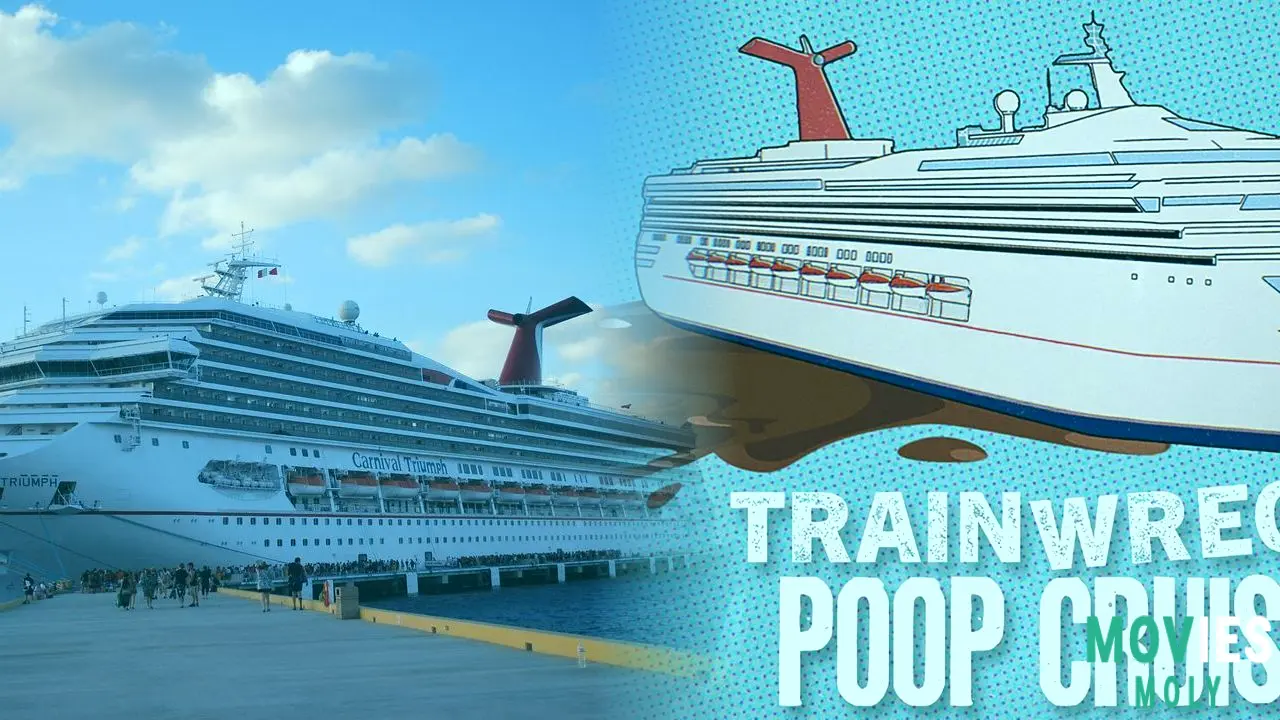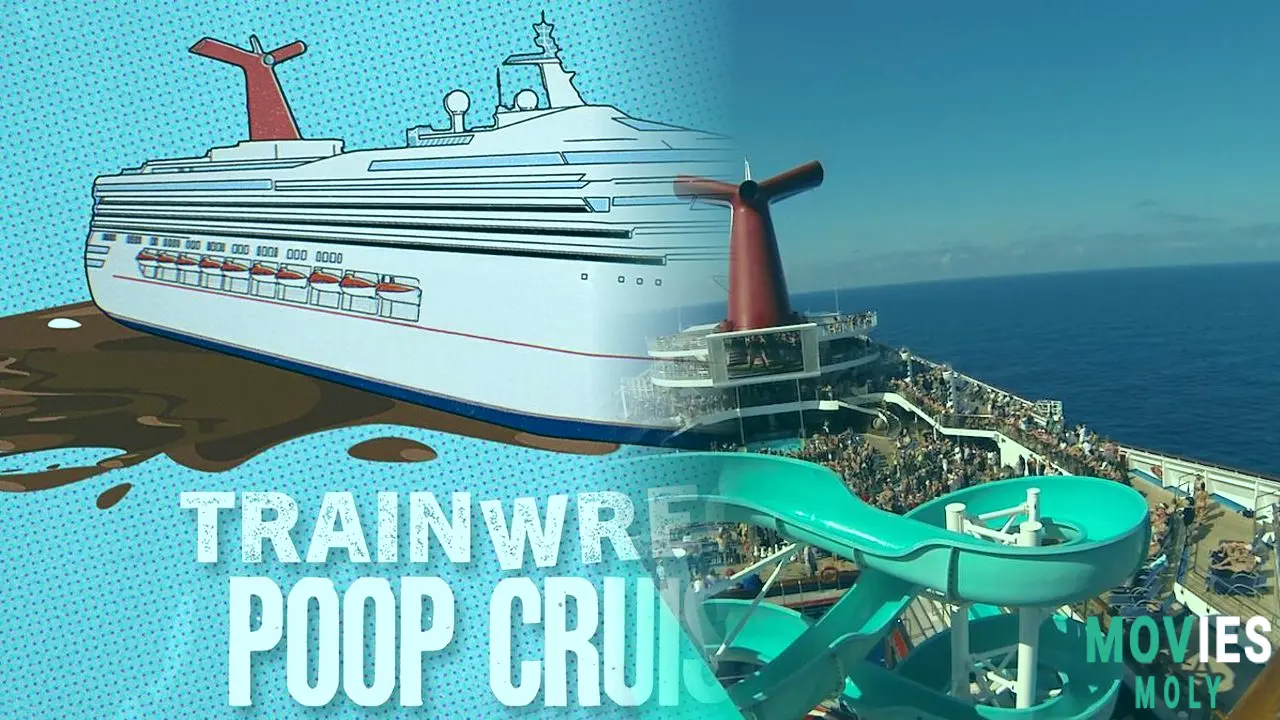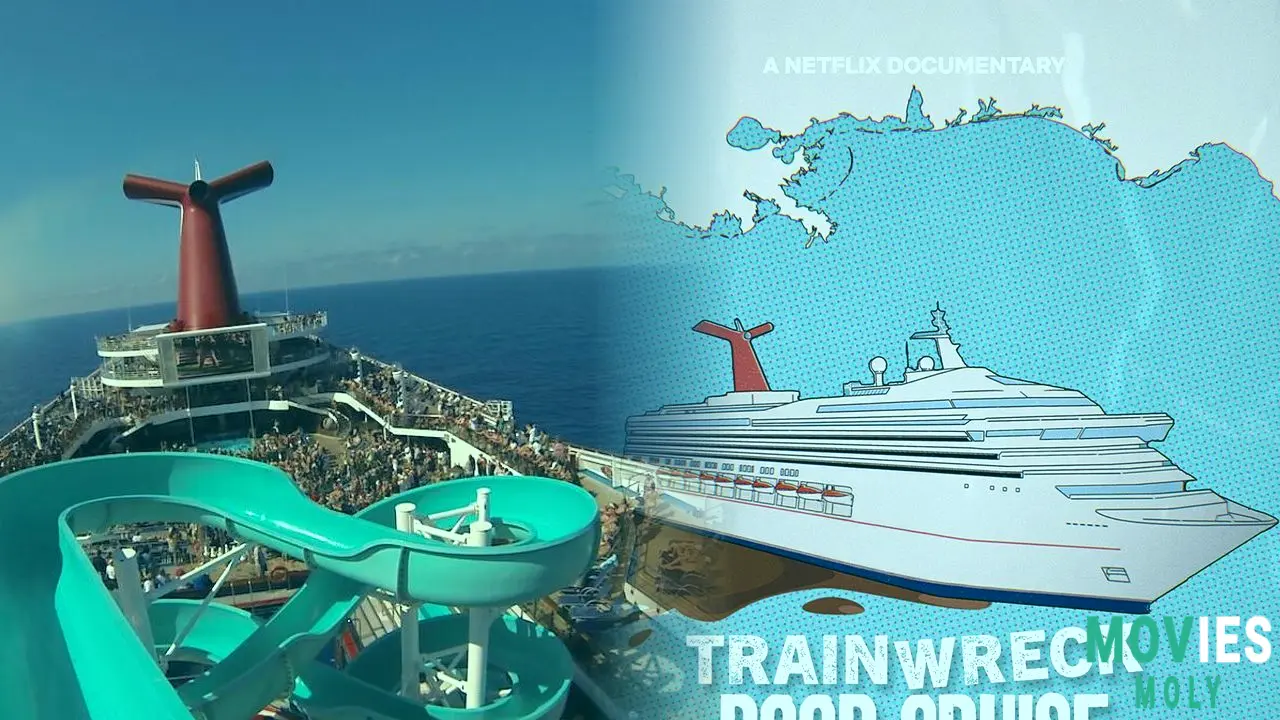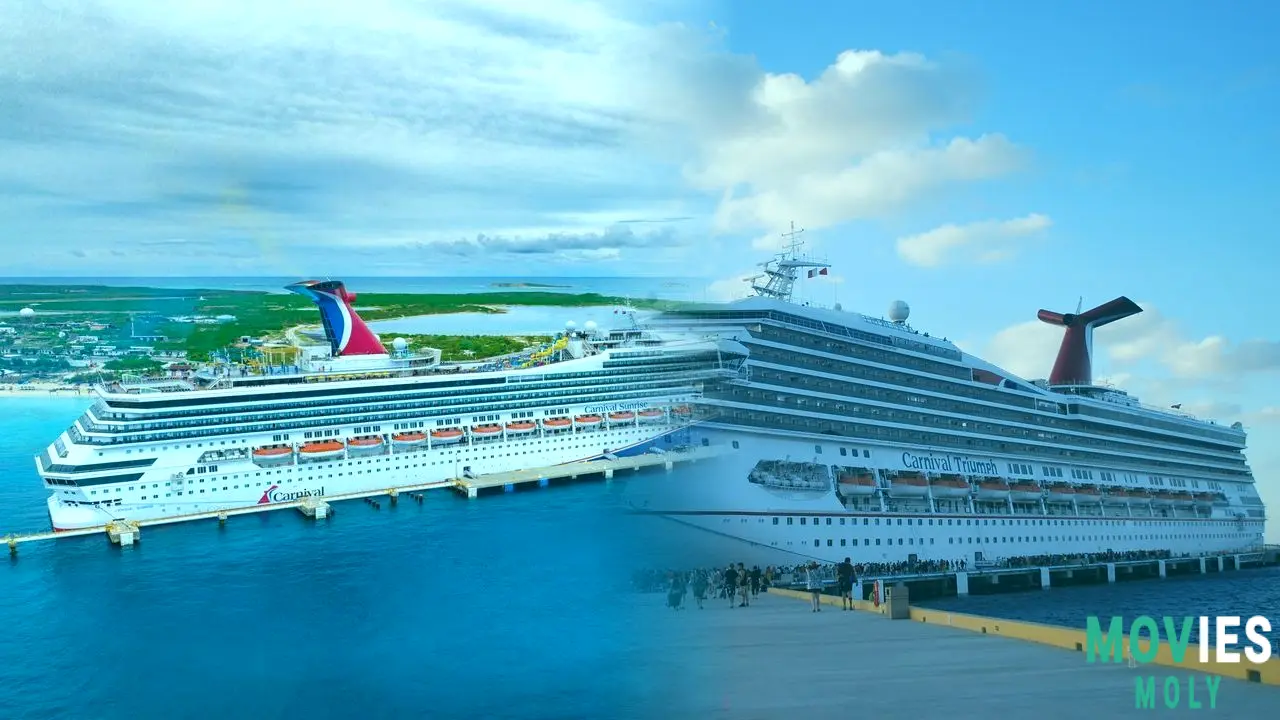We all enjoy a good disaster narrative, especially when it happens on television, where we can stay safe from the chaos. Trainwreck: Poop Cruise, a new Netflix documentary, definitely shows the chaos that happened on the Carnival Triumph in 2013. Over 4,000 passengers and staff members had a nightmare of a journey to Cozumel, Mexico, that started out as a calm four-day trip. The specifics of the ship that became stuck and the horrible circumstances on board are enough to make anyone cringe, but what really astonished me was the creepy corporate response and the bold legal moves made by Carnival Cruise Line.
This 55-minute episode of the "Trainwreck" anthology series remembers the event, which got its famous nickname because to broken toilets and untreated sewage. It's tempting to write off these kinds of things as a one-time incident or a fluke, but the documentary shows, via firsthand testimonies, that there's more to it than just a technical failure. It brings up a bigger question of corporate accountability and how a corporation deals with a crisis when its consumers are physically drowning in their own waste.
The Carnival Triumph's Descent Into A Floating Nightmare: Beyond ImaginationThe Terrifying Truths About Life on the Stranded Ship
Imagine waking up on what was supposed to be a paradise vacation and finding yourself stuck on a boat in the Gulf of Mexico with no power. That was the sad truth for people on the Carnival Triumph in February 2013. A fire in the engine room cut out the ship's electricity, which meant that everything from the air conditioning and lights to the freezers and, most importantly, the toilets stopped working.
Passengers had to deal with the heat, darkness, and diminishing food supplies for four long days. The documentary illustrates how desperate individuals were, pulling mattresses out onto open decks to get away from their stuffy quarters. But the most disgusting part of the episode, which is what gave it its famous moniker, was the collapse of sanitation. Crew members told passengers to pee in the shower and poop in red biohazard bags. But as the trash cans filled up, these bags started to line the passageways, and raw sewage started to leak into cabins and dribble down the walls. One crew member said that the bathrooms looked like "poop lasagna."
The mess wasn't just about cleanliness. Passengers said there were fights over food and even public sex in improvised "tent cities" on deck. It sounds like something out of a dystopian movie, like a real-life "Lord of the Flies" situation at sea. Some passengers later said that the experience gave them PTSD. It's really hard to understand how bad things have gotten for people and how basic order has broken down.
Carnival's Disturbing Legal Strategy and PR War

A Ticket Clause That Said Things Would Go Wrong
What I found most astonishing about this whole thing wasn't just what happened, but also how Carnival reacted when they were sued. As marine lawyer Frank Spagnoletti, who represented numerous passengers, points out in the documentary, Carnival's lawyers tried to utilize a clause buried deep in the ticket's terms and conditions to say that customers couldn't sue.
This provision said that Carnival "makes absolutely no guarantee for safe passage, a seaworthy vessel, adequate and wholesome food, and sanitary and safe living conditions." I was really shocked when I heard this. It's amazing that they had the nerve to add such a disclaimer, which basically lets them off the hook for the most fundamental human needs and safety. It makes me think that if most people had realized this was going to happen, they wouldn't have bought a ticket. Even though this was a really rude way to dodge responsibility, Carnival eventually reached a settlement with all the passengers who sued.
Carnival's public comments after the event called it a "teachable moment for the whole cruise industry." They spent more than $500 million on fire protection, better redundancy, and better management systems for their whole fleet. It's great that these safety improvements are being made, but it's hard to forget that the company seemed to care more about finding legal loopholes than keeping passengers safe at first.
The Netflix documentary as a reason to think again

Making Companies Responsible
Trainwreck: Poop Cruise is more than simply a story about a disgusting event; it's a deep look at how a crisis happens and how businesses react. The documentary does a great job of focusing on the passengers and crew who were there and giving their honest, first-hand accounts. This personal element is what gives the story its weight and makes it so powerful.
The movie also shows how important social media is. Passengers on the Carnival Triumph couldn't use their phones when the ship first got stuck. But social media posts from a nearby ship's Wi-Fi immediately brought the incident to the attention of the whole world, pushing Carnival's hand and turning it into a "complete media bloodbath." This is a clear reminder that in today's environment, consumers have a lot of power to hold companies accountable, especially when they speak up on social media. The documentary is a strong proof that you can't hide a disaster when people can see it on the internet.
The Lingering Questions: What Does This Mean for the Cruise Industry Now?

The Ship's New Name and the Future of the Industry
After a $200 million renovation, the Carnival Triumph was renamed Carnival Sunrise in 2019. It is still sailing today. This rebranding, which is being sold as a change, also seems like an effort to remove the ship from its bad history. I wonder how many of the people on board right now don't know they're on the "Poop Cruise."
It's also intriguing that Netflix's documentary came out at the same time that Carnival announced record profits and made changes to its loyalty program that some people didn't like. It's hard to understand how a corporation can be doing well financially while making decisions and doing things that turn off its most devoted customers. People who were on the Carnival Triumph felt "unseen" before they made a fuss on social media, and that's how today's unhappy loyalty members feel.
The "Poop Cruise" is still a very clear warning. Carnival says the tragedy was a "teachable moment" and has spent money on safety, but the basic problems regarding passenger rights and company accountability in unexpected situations remain. It reminds us that even in places that seem fancy, things may go wrong, and how a firm reacts shows what kind of organization it really is.
Everyone should watch Trainwreck: Poop Cruise on Netflix. It's an eye-opening look at a terrible occurrence and the many levels of corporate responsibility that come after it. Before you schedule your next cruise, you should think about it again.




